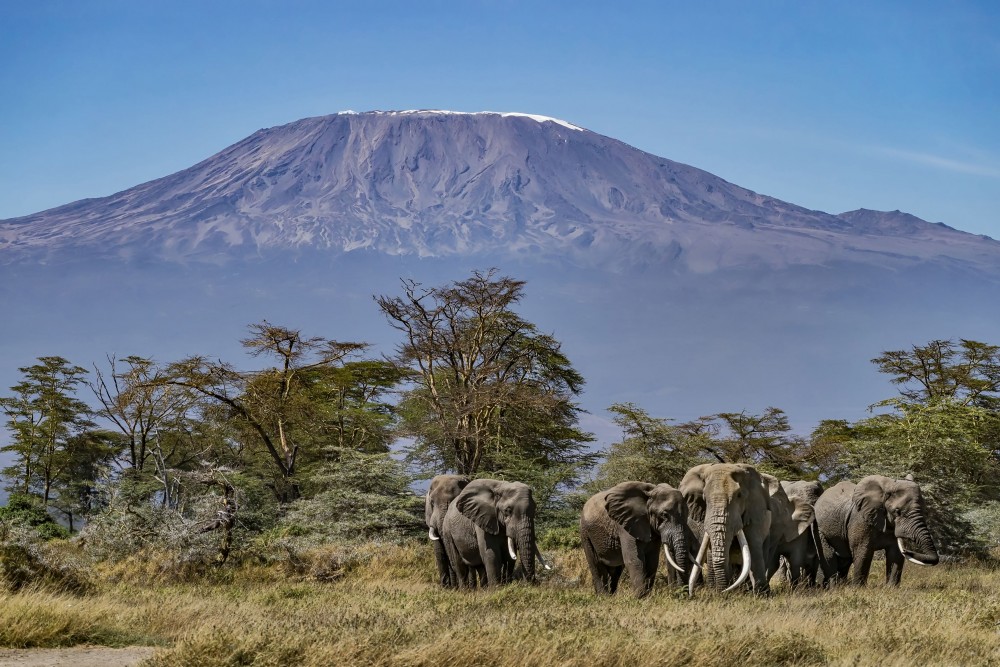
Kenya Avocado Farm To Disrupts Elephant Movement
A 49-year-old elephant that is considered having the longest tusks among others in the Amboseli ecosystem grazes with a view of Mount Kilimanjaro in the background at Kimana Sanctuary in Kimana, Kenya, on March 3, 2021.
Conservationists say movement of elephants would be disrupted by an avocado farm.
A commercial avocado farm located near a key wildlife park in Kenya has lost a bid to have its licence reinstated and resume operations.
The national environmental regulator had suspended Kiliavo Fresh’s licence last year and ordered all work on the farm to stop.
It followed concerns by conservationists and some landowners that it would interfere with wildlife habitats as well as affect some of the residents’ pastoral livelihoods. The conservationists argued that the farm would disrupt the movement of elephants into and out of the Amboseli National Park.
The farm appealed against the decision.
The National Environmental Tribunal, the special court hearing the appeal ruled against Kiliavo – which had already fenced off and cleared part of the over 100 acre (40 hectares) land for avocado farming in Kimana, in Kenya’s south-west near the Amboseli park.
Kiliavo has not issued any statement after the ruling.
Biglife Foundation, one of the organisations opposed to the farm – welcomed the decision, while noting that the decision may not mean the end of the issue.
“This is likely not the end of this battle, but the ruling is an indication that Kenya will take seriously the health of the environment, and wishes of local communities, when faced with negative consequences of corporate-led ‘development’”, it said in a statement.
The agricultural company had argued that it had legally acquired the farm after buying it from a group ranch and got government approval – and noted that local residents would also benefit.
Kenya is one of the biggest avocado exporters in Africa with exports having grown rapidly in the last decade.

